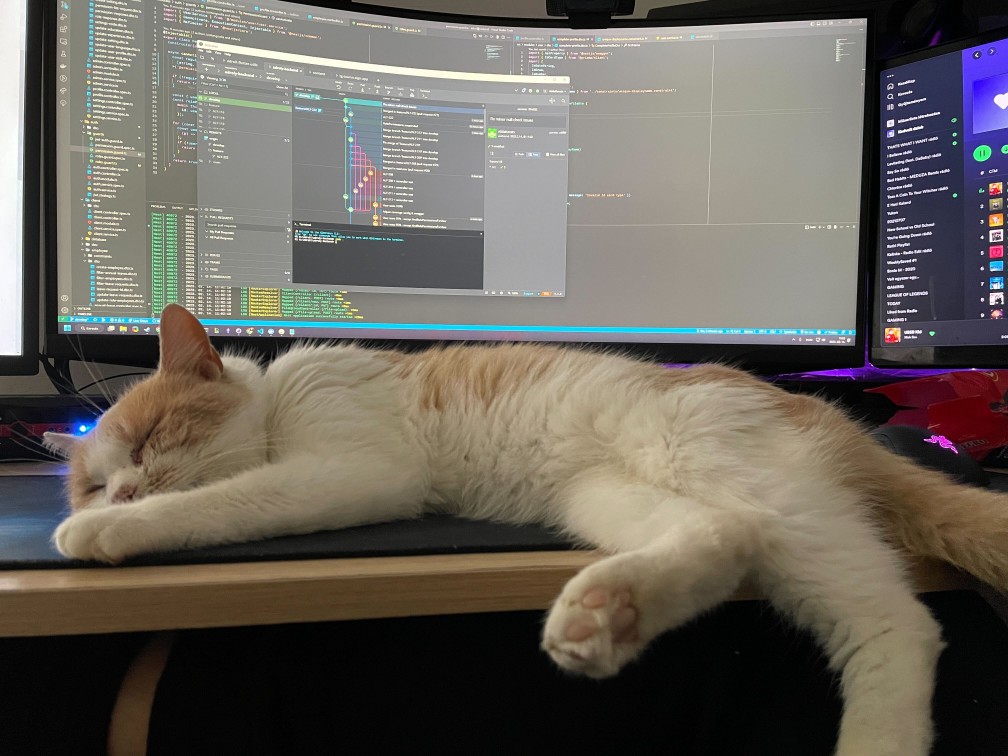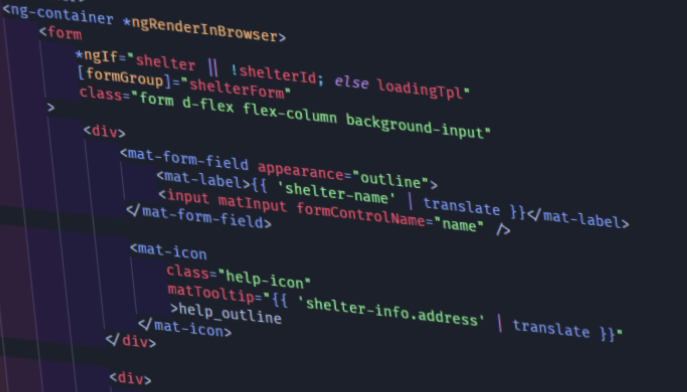Remote work challenges for individuals
Let’s start with the challenges that you have to face as an individual to fit work into your personal life.
#1 Unplugging after work

Flexible working hours seem a great benefit, right? Yes, it is… if you can manage your time and learn how to unplug after work.
Believe me or not, but for most of us, it’s not as easy as it seems to be. In fact, according to Buffer’s State of Remote Work, report unplugging after work is the most common issue remote workers have to face.
You might find yourself doing overtime at the end of the day. “I just finish this task” or “a colleague has just Slacked me, I answer him quickly” you might think. But to tell the truth, I see no point in all the benefits of working from home if you can’t switch off at the end of the day.
So, what can you do to unplug while working from home?
First of all, try to divide your work and personal life as much as possible. If you have the possibility, have a dedicated workspace. It might be a coffee shop, a co-working space or even a spare room at home. A distraction-free workspace helps you to keep focused on your work and tick the tasks off your list, so you don’t feel guilty at the end of the day.
Also, a good practice for me is to manage my availability and switch off notifications outside of working hours. At Adroit we use Slack for an internal chat where I can let the team know when I’m online and when I sign off at the end of the day. So, they know their questions or queries will be answered when I turn available again. No other dinner will be interrupted, I guarantee.
#2 Overcoming distractions

Q: Is the new feature ready?
A: Not yet, unfortunately, I'm blocked.
Q: I understand that we have answers to all questions, so what is blocking?
A: It's compliCATed.
If you’re struggling to stay focused while working from the comfort of your home, you are not alone! Kids running around your home during school holidays, digital distractions, household duties, walking the dog, and your partner also working from home… your house is full of distractions. And so is everyone else.
It can be tough to properly eliminate distractions without scheduling your day. Think about your biggest distractions. For example, if the biggest issue for you is with household activities, try to schedule them for the early morning or the evening before, so you don’t get interrupted by the washing machine or the dishes you left in the evening.
If kids or pets mean the biggest distraction for you, try to break your day down into smaller time slots. Dedicate the right amount of time to your kids when you know they need you and set you in “do not disturb” mode when you have to focus on work.
For everyone, digital distractions are the most common ones. You know, when you quickly check your emails, social media channels or messages. What I found most effective in this case is to mute my devices. I only check them when I take a short break for a lunch for example. Just make sure that the short break doesn’t take hours ☺
#3 Staying motivated

Staying motivated takes third place in the list of the most common remote work challenges for individuals. I think that the fact that no boss is looking over your shoulder contributes to it in a big part. By not being in the office, you might feel less pressure on getting things done, so lose motivation.
Also not dressing up in the morning and the comfortable seat on the sofa probably don’t provide you with the same motivation as an office environment.
As a leader of a fully remote-based company, for me, it’s essential to apply the right strategies to keep my team motivated and avoid that they feel lonely (which might also contribute to the lack of motivation).
Personally, I think the key to staying motivated is to get organised.
Imagine that you wake up in the morning, have a long task list and just don’t know where to start. I’m sure you would prefer to stay in bed, right? What you can do is divide your tasks into micro-tasks and prioritise them for the day. In this way, you get a clear idea of where to start.
You can add them to a checklist and tick them off once you finish them. Seeing that you complete your to-do list step by step can be really motivating. And you will also impress your manager! ☺
Another thing I suggest is to talk to your team and organize daily stand-ups in the morning. Team members can motivate each other and having to present your to-do list makes you prepared for the day.
I also find it important to know your personal energy level throughout the day. For example, I’m more productive after 10:00 and have less energy in the early morning when I still need to ‘wake up’ and at the end of the day when I feel more tired. But it varies, there is no one fits all strategy. But what I can recommend is to do the most important or difficult tasks when you have the highest level of energy and save the smaller tasks that require less concentration when your energy level is lower. This technique will not only help you to stay motivated, but it will also increase your productivity.
#4 Isolation/lack of social interactions
By working from home, you can at least stay away from being surrounded by too many people and useless water cooler communication in the office you might think.
In the first days and maybe weeks you can feel this huge advantage of remote working. But if you are at home alone the whole day and the only living creatures to talk to are your pets or plants… well, sooner or later you will find yourself very isolated.
When working in the office you can chat with your colleagues, share the lunch break with them, or go out for a drink after work. In case you work from home all these social interactions are impossible.
There are so many ways to increase your social interactions. It all depends on you.
You can simply get organised with your friends and go out for a lunch together. Or you can decide to work outside of your home, for example in a co-working space or a coffee shop. The opportunities are unlimited.
You might also feel that it’s enough for you to be able to talk to somebody during the day. And this is really important for us at Adroit. We use Discord to chat with each other. Actually, I always recommend everybody to jump on Discord with the team when it’s possible.
And also, turn on your camera when you are in meetings or conversations with your colleagues. It makes things much more personal and realistic knowing that you are talking to a human and seeing also non-verbal communication.
Yes, it means that you should dress up in the morning. But to tell the truth it’s a significant part of the daily routine. It will make you feel as if you are dressed up to go to work, even if you wear casual clothes.
#5 Lack of healthy habits
A sedentary lifestyle when doing office work is a big problem for the population. And remote work makes it even worse. When you are at home during the whole day without the need to go to the office, you might find it more challenging to have healthy habits.
And then, you have the kitchen…so close to your room…you can find it difficult to resist the smell of delicious food. Or do you prefer some snacks and chocolate bars? It’s easy to get tempted.
Or if you are like me, you might find it difficult to dedicate some time to have lunch because you are so overwhelmed.
But what can you do to avoid these bad habits? Of course, you need a balanced daily routine.
First of all, try to do small pauses during the day. 5-10 minutes every hour are enough to get away from your computer, go out and breathe some fresh air or drink a coffee. I know it might be challenging in case you have meetings or customer calls, but it truly helps to refresh your brain and gain some energy for the next hour.
Also, after spending the whole day in front of your computer, try to do something completely different. No, playing Call of Duty after work is not a good solution I’m afraid. Go out, and do some exercise to keep also your body trained, while your brain can relax after a hard day.
I find this challenging, but believe me, if you spend the whole day (even your spare time) in front of the screens, you could easily burn out.
Remote work challenges for teams
After understanding what challenges you might face as an individual, let’s see what difficulties you can find as part of a team.
#1 Collaborating and communication

Flexible working hours and being in a different time zone than teammates are two important factors that make collaboration between remote teams undoubtedly the most common challenge.
“Should I send work-related messages after (or before) a certain hour?” “Which channels should I use to communicate with my colleagues?” “Is there a communication policy at the company?”
These are all questions that might come to your mind. And you are not alone.
When I founded Adroit Group as a fully remote company, I had to find an answer to all these questions. Emails are simply not enough for remote team communications. You need something instant, responsive and that you can use based on your availability.
We tried out several options, but as a group of young individuals, what works well for us is Slack. We use different channels based on the type of conversation and interest. In this way, everyone is aware of the topic and tone of voice to use when posting a message on a certain channel.
At the same time, it has all the features that a remote team needs, just as the possibility to set your status to available or not and choose the timeframe when you want to get an email notification in case of a new message.
And – talking about communication - don’t forget about the power of video calls. I think this is the best way to replace in-person communication and bridge the distance. I know you think it might be difficult with employees in different time zones, but it’s worth it.
Try to find a suitable time for everyone. Let’s say when it’s morning for a colleague and afternoon for another. It brings closure to your team and provides real-time conversation, also through screen sharing if needed to discuss things visually.
#2 Coordination
Team coordination has always been crucial to delivering great results. And it’s even more important when talking about remote teams. It’s a common problem that teammates don’t know what’s happening, or they’re waiting for others before they can start to work on their tasks (because of the dependencies).
When there is no coordination in the team, the workflow is slower and you can’t calculate the deadlines. Especially for us at Adroit, working on client projects it becomes essential to always understand the status of the tasks to be able to communicate realistic timelines to our customers.
As a solution, to make sure that teams and tasks are coordinated correctly, I would suggest writing "reports" to team members and team leads. Team members are often lost, they work on their own, in their time slots. There is no communication except during the standups.
I find it useful to write a short status to the team at least daily, so everybody knows the current status of your work. It will be greatly appreciated by the project manager. Success guaranteed.
#3 Managing projects and tracking tasks
Working at an agency where sometimes one person is on more than one project, I feel this remote work challenges even more. And it’s not a challenge only in the internal team, but also while working with our clients.
Managing projects, keeping track of the progress of single tasks and making sure that the team hits the target goal might create some headaches. But what can you do?
Well, if you want to manage individual tasks while seeing the whole picture, you probably need a project management system. If used properly by the whole team, it will give you an overview of all the tasks and their status. Then, you can use this information to follow up with individuals or smaller teams to have an in-depth update on what’s happening.
There are a couple of software solutions out there to help you manage the workload, where you can assign tasks to individuals and set a deadline, so you can keep everything under control.
#4 Building and maintaining strong company culture
As described previously, when you are from home it’s really difficult to socialize with your colleagues. There is no face-to-face interaction, you don’t spend time in the office with your teammates and it makes it even more challenging for leaders to build a strong company culture and maintain team spirit.
At Adroit we organize team-building events and retreats regularly. It helps us to get to know each other better, make new friends and help new hires integrate better into the company’s life. We found that when you establish friendships with people you work with, it’s more likely that you’ll be satisfied with your job.

Building relationships can also help to create a sense of belonging to the team, which contributes to employee engagement and also employee retention.
Through different games and fun activities, we also try to boost team spirit and help team members to learn how to collaborate most effectively.
Outline
This article should have been of great interest to you and offered you a few helpful techniques to cope with the difficulties of working remotely. While it's a fact that you'll initially encounter many obstacles, recall that being a remote worker allows you the autonomy to regulate your own time, allowing for an improved work-life balance.
Thus, just take it easy and take pleasure in the benefits of working from home!




